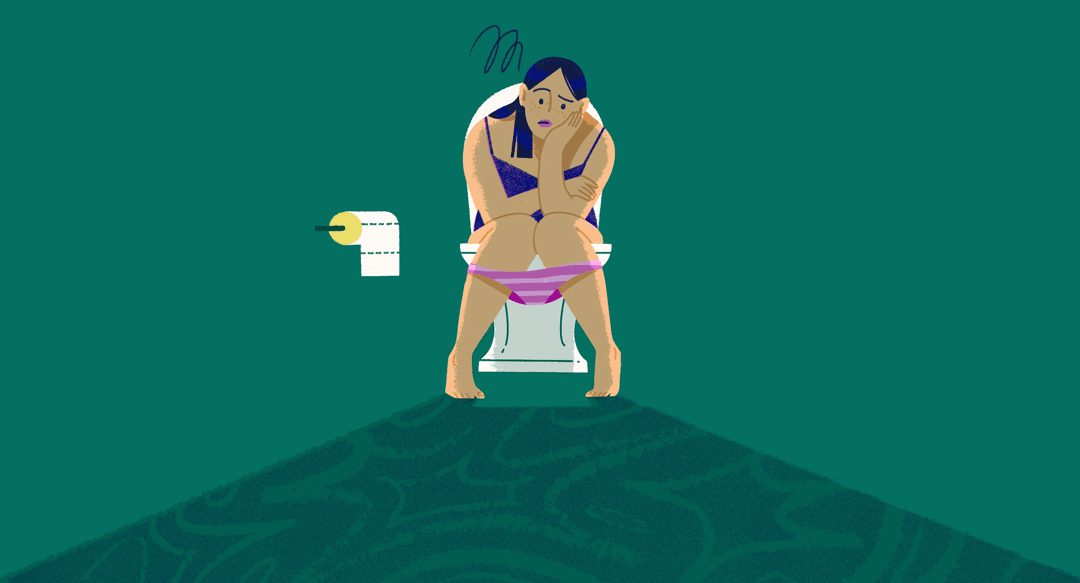
Sex & UTIs 101
Share
Before we begin this journey, I need you (the reader) to know that as I write this blog, I literally have a UTI. How on-brand is that? So, yes, I consider myself an expert, at least at this moment.
What Are UTIs?
A UTI stands for Urinary Tract Infection. It is an infection that can occur in any part of the urinary system, including the bladder, urethra, kidneys, and ureters. However, UTIs are most commonly found in the lower urinary tract, specifically the bladder and urethra.
UTIs are typically caused by bacteria entering the urinary tract through the urethra and multiplying in the bladder. The most common type of bacteria that causes UTIs is E. coli, which normally resides in the digestive system.
Who Gets UTIs?
UTIs can affect people of all ages and genders, but some groups are more prone due to certain factors. Here are some common groups of people who are more likely to get UTIs:
- Women: Women and people with uteruses are more susceptible to UTIs due to their shorter urethra, which allows bacteria to reach the bladder more easily. Additionally, the urethra's proximity to the anus can lead to the transfer of bacteria from the digestive tract to the urinary tract. So please wipe front to back! This is important!!
- Pregnant People: Pregnant people may experience changes in their urinary tract and hormonal levels, making them more susceptible to UTIs.
- Urinary Tract Abnormalities: People born with structural abnormalities in the urinary tract or those acquired through injuries or medical conditions might have an increased risk of UTIs.
- Elderly Individuals: As people age, the risk of UTIs may increase, especially in older women. This can be attributed to weakened immune systems, hormonal changes, or age-related urinary tract changes.
While these groups may be more prone to UTIs, anyone can develop a UTI.
What Are UTI Symptoms?
UTI symptoms can vary depending on where the infection is and its severity. Here are some common symptoms associated with UTIs:
- Frequent and Urgent Urination: You may feel the need to urinate more often than usual, and you may feel an urgent need to go even if only a small amount of urine is passed.
- Pain or Burning Sensation During Urination: You might experience a burning or stinging sensation when you pee. This is known as dysuria.
- Cloudy or Bloody Urine: The appearance of your urine may change, becoming cloudy, dark, or even containing traces of blood.
- Strong-smelling Urine: Urine affected by a UTI can have a strong and unpleasant odor.
- Lower Abdominal or Pelvic Pain: You may experience discomfort, pressure, or cramping in the lower abdomen or pelvic region.
- A Feeling of Incomplete Bladder Emptying: You might feel like your bladder is not entirely empty after urinating.
- Fever and Chills: In more severe cases, a UTI can lead to a fever and chills, which may indicate that the infection has spread to the kidneys (pyelonephritis).
- Pain in the Back or Side: Kidney infections can cause pain in the back or side of the affected kidney.
It's important to note that UTI symptoms may vary from person to person, and some individuals may not experience any symptoms at all, especially in the early stages of the infection. Additionally, UTI symptoms in older adults and children may differ from those experienced by younger adults.
If you’re concerned, use a cycle-tracking app like Orchyd to track your sexual activity and any symptoms you may experience.
Can You Get a UTI From Sex?
Simply put–yes, you can get a UTI from sex. During sex, especially vaginal intercourse, bacteria from the genital and anal areas can be introduced into the urethra. The bacteria can then travel up the urethra and infect the bladder, causing a UTI.
Why Does Sex Lead to UTIs?
Sex can lead to UTIs because the urethra is very close to the genital and anal area. This means bacteria can enter the urinary tract more easily during sexual activity. Here are some reasons why:
- Anatomy: In women, the urethra is located close to the vagina and anus, which makes it easier for bacteria to enter the bladder. Friction and movement from sex can sometimes push bacteria toward the urethra and into the bladder, causing an infection.
- Bacterial Transfer: Bacteria naturally live in the genital and anal areas. When there is close physical contact during sex, these bacteria can be transferred to the urethra, increasing the risk of infection.
- Mechanical Irritation: Sex can sometimes irritate the genital area, including the urethra, which may create small openings in the mucosal lining. These tiny breaks in the skin's barrier can provide an entry point for bacteria, facilitating infection.
- Contraceptive Methods: Certain contraceptives, such as spermicides, diaphragms, or unlubricated condoms, may increase the risk of UTIs because they irritate the urethra or promote bacterial growth. If you have any questions about what contraceptives are best for you, speak with a doctor, available 24/7, via Orchyd MD™.
- Frequency of Sex: The more frequently you have sex, the higher the risk of potential exposure to bacteria.
While sex can contribute to UTIs, it's important to note that not everyone who has sex will develop a UTI. Other factors, such as your hygiene and overall health, play a role in determining susceptibility to UTIs.
Can You Have Sex With a UTI?
It is generally recommended to avoid sex while you have a UTI because it can potentially worsen the infection, cause discomfort, and may lead to further complications. Here are some reasons why it's best to refrain from sex when you have a UTI:
- Increased Discomfort: UTIs can cause symptoms like pain, burning, and discomfort during urination. Sex can worsen these symptoms and make the experience uncomfortable for you.
- Risk of Spreading the Infection: Sex can potentially spread the bacteria to your partner, leading to their infection or reinfection for you. That being said, UTIs are not STIs. I’ll explain this further down the page.
- Irritation: Sex can cause mechanical irritation to the genital area, including the already sensitive urethra affected by the UTI, which can intensify the discomfort.
- Delayed Healing: Sex can interfere with the healing process, prolonging the recovery time.
It's essential to give your body time to heal and finish the antibiotics prescribed by your healthcare provider to treat the UTI effectively. If you experience UTI symptoms and are currently being treated for a UTI, it's best to discuss the issue with your healthcare provider or an Orchyd MD™ doctor before having sex.
How To Reduce Your Risk
To reduce the risk of UTIs related to sex, you can take preventive measures, such as:
- Pee before and after sex to help flush out any bacteria that might have entered the urethra during intercourse.
- Drink plenty of water to promote frequent urination and help flush out bacteria.
- Maintain good hygiene, including washing the genital area before and after sex.
- Consider using water-based lubricants during sex to reduce friction and irritation.
- Avoid using irritating substances in the genital area, such as scented soaps or douches.
If you are experiencing symptoms of a UTI after sex or at any time, it's essential to seek medical attention for proper diagnosis and treatment. UTIs can be effectively treated with antibiotics, and early intervention can prevent complications and discomfort. Orchyd MD™ is available 24/7 and on-demand if you need any medical assistance.
After completing the prescribed treatment and once your symptoms have resolved, it should be safe to resume having sex. However, it's always a good idea to maintain good hygiene practices, urinate before and after sex, and communicate openly with your partner about any health concerns to minimize the risk of future UTIs.
Best At-Home UTI Care
While it's important to seek medical attention for a proper diagnosis and treatment of a UTI, there are some at-home measures you can take to help alleviate discomfort and support your recovery. These measures can complement the prescribed treatment from your healthcare provider. Here are some best practices for at-home UTI care:
- Stay Hydrated: Drink plenty of water to help flush out bacteria from your urinary tract. Staying hydrated can also dilute your urine, which may help reduce the burning sensation during urination.
- Urinate Frequently: Urinate as soon as you feel the need to, and try not to hold it in for too long. Emptying your bladder regularly can help prevent bacteria from multiplying in the urinary tract.
- Take Pain Relief: Over-the-counter pain relievers, such as ibuprofen or acetaminophen, can help reduce pain and discomfort associated with UTIs. Always follow the recommended dosage and consult with a healthcare professional or Orchyd MD™ doctor if you have any concerns or medical conditions. A great option is Stix’s UTI Fast Acting Pain Relief, which can be found on the Orchyd Marketplace™. It helps with discomfort, burning, urgency, and frequency.
- Use a Heating Pad: Applying a heating pad to your lower abdomen can help ease the discomfort caused by a UTI. Be sure to use a low or medium setting and avoid applying it directly to your skin to prevent burns.
- Avoid Irritants: Avoid substances that can irritate your bladder, such as caffeine, alcohol, spicy foods, and citrus juices. These can potentially worsen your UTI symptoms.
- Practice Good Hygiene: Always maintain good hygiene practices, especially around the genital area. Make sure to wipe from front to back after using the bathroom to prevent bacteria from entering the urethra.
- Consider Probiotics: Some studies suggest that probiotics may help prevent UTIs by promoting a healthy balance of bacteria in the urinary tract. You can find probiotics in supplement form like Stix’s UTI Daily Protection or in certain foods like yogurt.
- Avoid Sexual Activity: Refrain from sexual activity until your UTI has cleared to avoid exacerbating your symptoms or potentially spreading the infection.
It's important to note that while these at-home measures can provide temporary relief and support your recovery, they do not replace medical treatment. UTIs require appropriate antibiotics prescribed by a healthcare professional to effectively eliminate the infection. If you suspect you have a UTI or are experiencing symptoms, it's crucial to consult with your healthcare provider or an Orchyd MD™ doctor for a proper diagnosis and personalized treatment plan. UTIs can lead to complications if left untreated, especially if the infection spreads to the kidneys.
If you’re unsure if you have a UTI, your healthcare provider can perform tests to confirm the presence of a UTI and prescribe appropriate antibiotics or other treatments to resolve the infection. Alternatively, if you don’t want to make the drive to the doctor’s office, try Stix UTI Tests. They are FDA-approved and over 99% effective.

